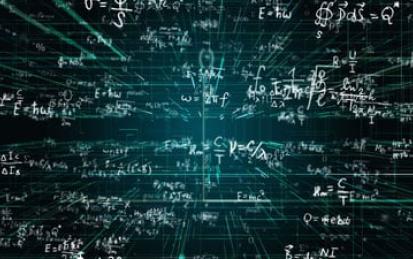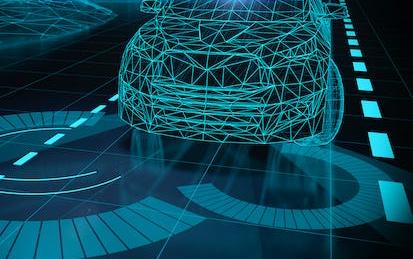

Our Courses

Calculus II: Multivariable Functions
This course provides an overview of bachelor-level calculus of multivariable functions (Calculus II). You will review many basic concepts related to differentiation and integration of multivariable functions.
-
Course by

-
 Self Paced
Self Paced
-
 27
27
-
 English
English

Calculus I: From Functions to Differential Equations
Refresh and review your bachelor-level calculus. This course covers all the various differentiation and integration techniques and guides you through several important methods for solving differential equations.
-
Course by

-
 Self Paced
Self Paced
-
 21
21
-
 English
English

Pre-University Calculus
Prepare for introductory calculus courses by reviewing functions, equations, differentiation, integration and analytic geometry.
-
Course by

-
 Self Paced
Self Paced
-
 49
49
-
 English
English

MathTrackX: Integral Calculus
Discover concepts and techniques relating to integration and how they can be applied to solve real world problems.
-
Course by

-
 Self Paced
Self Paced
-
 18
18
-
 English
English

MathTrackX: Differential Calculus
Discover concepts and techniques relating to differentiation and how they can be applied to solve real world problems.
-
Course by

-
 Self Paced
Self Paced
-
 15
15
-
 English
English

Mathematics 1 Part 2: Integral calculus, algebra, and applications
The second in a series of two courses which help you to master mathematics fundamentals and build your quantitative skillset for progression in high-growth careers, or to use as step towards further study at undergraduate level.
-
Course by

-
 Self Paced
Self Paced
-
 English
English

Mathematics 1 Part 1: Differential Calculus
The first in a series of two courses from LSE which help you to master mathematics fundamentals and build your quantitative skillset for progression in high-growth careers, or to use as step towards further study at undergraduate level.
-
Course by

-
 Self Paced
Self Paced
-
 English
English

Self-Driving Cars
Be at the forefront of the autonomous driving industry. With market researchers predicting a $42-billion market and more than 20 million self-driving cars on the road by 2025, the next big job boom is right around the corner. This Specialization gives you a comprehensive understanding of state-of-the-art engineering practices used in the self-driving car industry.
-
Course by

-
 Self Paced
Self Paced
-
 English
English

Computer Vision Basics
By the end of this course, learners will understand what computer vision is, as well as its mission of making computers see and interpret the world as humans do, by learning core concepts of the field and receiving an introduction to human vision capabilities. They are equipped to identify some key application areas of computer vision and understand the digital imaging process. The course covers crucial elements that enable computer vision: digital signal processing, neuroscience and artificial intelligence.
-
Course by

-
 13 hours
13 hours
-
 English
English

Calculus through Data & Modelling: Series and Integration
This course continues your study of calculus by introducing the notions of series, sequences, and integration. These foundational tools allow us to develop the theory and applications of the second major tool of calculus: the integral. Rather than measure rates of change, the integral provides a means for measuring the accumulation of a quantity over some interval of input values. This notion of accumulation can be applied to different quantities, including money, populations, weight, area, volume, and air pollutants.
-
Course by

-
 Self Paced
Self Paced
-
 9 hours
9 hours
-
 English
English

Calculus: Single Variable Part 1 - Functions
Calculus is one of the grandest achievements of human thought, explaining everything from planetary orbits to the optimal size of a city to the periodicity of a heartbeat. This brisk course covers the core ideas of single-variable Calculus with emphases on conceptual understanding and applications. The course is ideal for students beginning in the engineering, physical, and social sciences.
-
Course by

-
 Self Paced
Self Paced
-
 14 hours
14 hours
-
 English
English

Advanced Statistics for Data Science
Fundamental concepts in probability, statistics and linear models are primary building blocks for data science work. Learners aspiring to become biostatisticians and data scientists will benefit from the foundational knowledge being offered in this specialization. It will enable the learner to understand the behind-the-scenes mechanism of key modeling tools in data science, like least squares and linear regression. This specialization starts with Mathematical Statistics bootcamps, specifically concepts and methods used in biostatistics applications.
-
Course by

-
 Self Paced
Self Paced
-
 English
English

Mechanics: Motion, Forces, Energy and Gravity, from Particles to Planets
Most of the phenomena in the world around you are, at the fundamental level, based on physics, and much of physics is based on mechanics. Mechanics begins by quantifying motion, and then explaining it in terms of forces, energy and momentum. This allows us to analyse the operation of many familiar phenomena around us, but also the mechanics of planets, stars and galaxies. This on-demand course is recommended for senior high school and beginning university students and anyone with a curiosity about basic physics.
-
Course by

-
 Self Paced
Self Paced
-
 29 hours
29 hours
-
 English
English

Precalculus through Data and Modelling
This specialization helps to build the foundational material to use mathematics as a tool to model, understand, and interpret the world around us. This is done through studying functions, their properties, and applications to data analysis. Concepts of precalculus provide the set of tools for the learner to begin their scientific career, preparing them for future science and calculus courses. This specialization is designed for all learners, not just those interested in further mathematics courses.
-
Course by

-
 Self Paced
Self Paced
-
 English
English

Calculus through Data & Modeling: Differentiation Rules
Calculus through Data & Modeling: Differentiation Rules continues the study of differentiable calculus by developing new rules for finding derivatives without having to use the limit definition directly. These differentiation rules will enable the calculation of rates of change with relative ease the derivatives of polynomials, rational functions, algebraic functions, exponential and logarithmic functions, and trigonometric and inverse trigonometric functions.
-
Course by

-
 Self Paced
Self Paced
-
 8 hours
8 hours
-
 English
English

Mathematics for Machine Learning
For a lot of higher level courses in Machine Learning and Data Science, you find you need to freshen up on the basics in mathematics - stuff you may have studied before in school or university, but which was taught in another context, or not very intuitively, such that you struggle to relate it to how it’s used in Computer Science.
-
Course by

-
 Self Paced
Self Paced
-
 English
English

Electrodynamics
If you want to apply electrodynamics to your materials research project, this Specialization will help you do so. Electromagnetic force is one of the fundamental forces that hold atoms and molecules together, which are the building blocks of any materials.In four courses, you will learn the foundations of electrodynamics starting from the nature of electrical force up to the level of in-depth solutions of Maxwell equations. We will walk you through vector calculus, concepts of field, flux and circulation, electrostatics, and magnetostatics as well as electrodynamics.
-
Course by

-
 Self Paced
Self Paced
-
 English
English

Calculus Applied!
Apply tools of single-variable calculus to create and analyze mathematical models used by real practitioners in social, life, and physical sciences.
-
Course by

-
 Self Paced
Self Paced
-
 20
20
-
 English
English

Introduction to Machine Learning: Supervised Learning
In this course, you’ll be learning various supervised ML algorithms and prediction tasks applied to different data. You’ll learn when to use which model and why, and how to improve the model performances. We will cover models such as linear and logistic regression, KNN, Decision trees and ensembling methods such as Random Forest and Boosting, kernel methods such as SVM. Prior coding or scripting knowledge is required. We will be utilizing Python extensively throughout the course.
-
Course by

-
 Self Paced
Self Paced
-
 40 hours
40 hours
-
 English
English

Calculus: Single Variable Part 2 - Differentiation
Calculus is one of the grandest achievements of human thought, explaining everything from planetary orbits to the optimal size of a city to the periodicity of a heartbeat. This brisk course covers the core ideas of single-variable Calculus with emphases on conceptual understanding and applications. The course is ideal for students beginning in the engineering, physical, and social sciences.
-
Course by

-
 Self Paced
Self Paced
-
 11 hours
11 hours
-
 English
English

Mathematics for Machine Learning: PCA
This intermediate-level course introduces the mathematical foundations to derive Principal Component Analysis (PCA), a fundamental dimensionality reduction technique. We'll cover some basic statistics of data sets, such as mean values and variances, we'll compute distances and angles between vectors using inner products and derive orthogonal projections of data onto lower-dimensional subspaces.
-
Course by

-
 Self Paced
Self Paced
-
 21 hours
21 hours
-
 English
English

Physics 101 - Forces and Kinematics
This first course serves as an introduction to the physics of force and motion. Upon completion, learners will understand how mathematical laws and conservation principles describe the motions and interactions of objects around us. Learners will gain experience in solving physics problems with tools such as graphical analysis, algebra, vector analysis, and calculus. This first course covers 1D Kinematics, 2D Kinematics, and Newton's Laws. Each of the three modules contains reading links to a free textbook, complete video lectures, conceptual quizzes, and a set of homework problems.
-
Course by

-
 Self Paced
Self Paced
-
 30 hours
30 hours
-
 English
English

Digital Signal Processing 1: Basic Concepts and Algorithms
Digital Signal Processing is the branch of engineering that, in the space of just a few decades, has enabled unprecedented levels of interpersonal communication and of on-demand entertainment. By reworking the principles of electronics, telecommunication and computer science into a unifying paradigm, DSP is a the heart of the digital revolution that brought us CDs, DVDs, MP3 players, mobile phones and countless other devices. In this series of four courses, you will learn the fundamentals of Digital Signal Processing from the ground up.
-
Course by

-
 Self Paced
Self Paced
-
 29 hours
29 hours
-
 English
English

Physics 101 - Energy and Momentum
This second course serves as an introduction to the physics of mechanical energy and momentum. Upon completion, learners will understand how mathematical laws and conservation principles describe the motions and interactions of objects around us. Learners will gain experience in solving physics problems with tools such as graphical analysis, algebra, vector analysis, and calculus. This first course covers Energy, Translational Momentum, Collisions, Statics, and Elasticity.
-
Course by

-
 Self Paced
Self Paced
-
 23 hours
23 hours
-
 English
English

Digital Signal Processing 4: Applications
Digital Signal Processing is the branch of engineering that, in the space of just a few decades, has enabled unprecedented levels of interpersonal communication and of on-demand entertainment. By reworking the principles of electronics, telecommunication and computer science into a unifying paradigm, DSP is a the heart of the digital revolution that brought us CDs, DVDs, MP3 players, mobile phones and countless other devices. The goal, for students of this course, will be to learn the fundamentals of Digital Signal Processing from the ground up.
-
Course by

-
 Self Paced
Self Paced
-
 14 hours
14 hours
-
 English
English



